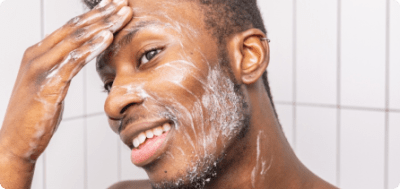
Squalane
Squalane is a natural substance usually derived from olives. It is structurally very similar to our skin’s own sebum, so is a great ingredient to support our own natural skin processes. In drier skin, which is naturally lacking in natural sebum, it helps to support the skin barrier to prevent water loss, which results in more hydrated, smooth and plump skin. Due to its sebum-mimicking structure, it is non-comedogenic, meaning it won't cause breakouts, so is also suitable for oily and acne-prone skin. It can be a great option to reduce any over-stimulation of the sebaceous glands, which can occur with excess cleansing (and make breakouts worse). It also works to support the skin barrier to combat any drying effects caused by ingredients commonly associated with acne treatment, so is a great ingredient for all skin types.
What is Squalane?
Squalane is a stable and lightweight form of squalene, a natural compound found in the skin's sebum. In skincare, it is used for its potential moisturizing, emollient, and skin-balancing properties.
What does Squalane do?
Squalane offers benefits such as: - Acts as a highly effective emollient, providing immediate and long-lasting hydration to the skin, helping to improve moisture retention and maintain a soft and supple complexion. - Forms a protective barrier on the skin's surface, preventing moisture loss and protecting the skin from environmental stressors. - Can help balance oil production, making it beneficial for individuals with oily or acne-prone skin.
Who is Squalane good for?
If any of the following apply Squalane might be a good option for you:





Who should avoid Squalane?
If any of the following apply it might be best to avoid Squalane:



Complete our quick quiz, then upload photos or book a video call (priced at £20 or £35)


Our award-winning AI analyses your skin before your aesthetician creates your personalised routine


Message your aesthetician with any questions and check-in as your skin changes for ongoing advice

